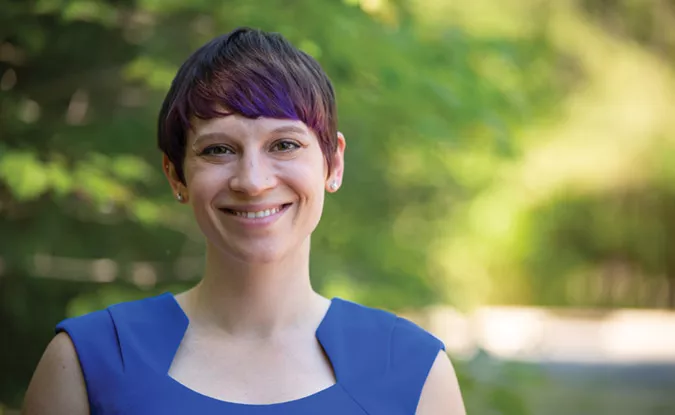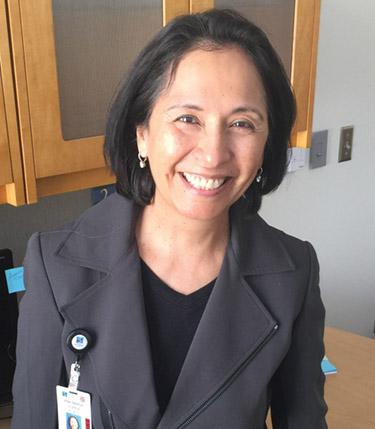The Art of Healing
Two Mawrters, two doctors, two philosophy majors share their thoughts about medicine and Bryn Mawr.
I was born in Bolivia and came to the U.S. when I was six. I grew up in Chicago and finished high school in Phoenix. I wanted strong academics, and it caught my eye that Bryn Mawr had been the first school to offer a woman a Ph.D. I remember thinking, “They’re serious about educating women.”
I was a philosophy major. I figured, “I’ll learn whatever STEM stuff I need, but what an opportunity to do philosophy.” What could be better than love of knowledge? That is what a liberal arts education is about.
As an integrative oncologist, I work primarily with women with cancer. Integrative medicine means thinking about lifestyle with an evidence-based approach. So we look at mind-body, at nutrition, at physical activity, at partners—acupuncturists, homeopathic.
It’s a privilege to be a physician. No matter what is happening, there’s an opportunity to help a person, to ease the pain, even if for just a little bit, and that’s really incredible.
When I was in med school, it was maybe 20–30 percent female; today almost every school is 50 percent or more female. But we see gaps in leadership—deans, department chairs, vice presidents. And the data show that, when you have diverse groups, you have better solutions. And through the culture’s unconscious biases, we consistently eliminate certain voices and we need those voices because we’re not benefiting from all the potential skill that’s out there.
I distinctly remember sitting in Karen Tidmarsh’s office as a sophomore and confidently telling her that I planned to double major in Chemistry and Philosophy and then pursue an M.D.-Ph.D. after graduating. She was so enthusiastic and encouraging that the plan was cemented in my mind and I never wavered from it after that.
I am currently in the middle of my M.D.-Ph.D. training. I started clinical rotations, but pressed “pause” on that portion of my training to complete my doctoral degree in Epidemiology. Right now, I’m in the heat of writing my dissertation on HIV and solid organ transplantation.
At the end of my training, I’m aiming to see patients while running a research lab of my own. It’s still a little early to know exactly what kind of medicine I will end up doing, but I do have a sense of the kind of clinical work that appeals to me thanks to my experience at Bryn Mawr. I found that simultaneously double majoring allowed me to thrive by pairing work that was more discrete and outcomes-based with work that emphasized concepts and delayed-gratification. Since I’m planning to continue doing research, which tends to operate on a longer time-scale and involve more gradual progress, I’m drawn to a very different environment for my clinical work. In particular, surgical disciplines are appealing to me, since you are able to address a patient’s concern in a tangible way and a timely manner.
Published on: 06/03/2019

